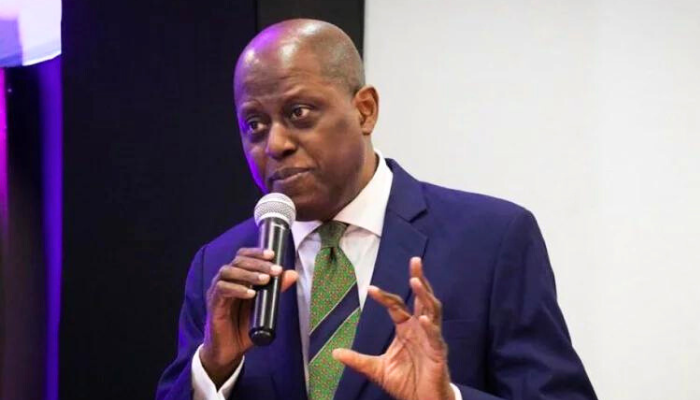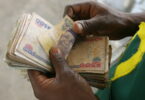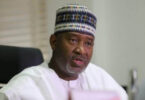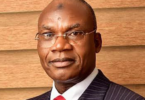
Nigerian parents whose children are studying abroad are battling to pay fees owing to the volatility in the exchange rate of the Nigerian currency, the naira, Daily Trust can report.
Some of them are said to have withdrawn their children from foreign institutions.
The naira weakened to a record low on January 30, 2024, selling for N1,413 against the dollar at the official foreign exchange window.
Findings by our correspondent revealed that while school fees had not increased in most universities abroad, the naira devaluation had jacked up the fees paid by parents from Nigeria.
According to the United Nations Educational, Scientific and Cultural Organization (UNESCO), Nigeria currently ranks 10th on the International Student Leading Place of Origin.
Of the 71,753 Nigerian students said to be studying abroad, 14,438 are in the United States.
Also, 128,770 Nigerian students enrolled at universities in the United Kingdom between 2015 and 2022 according to data from the Higher Education Statistics Agency of the UK. The data was released in July 2023.
UK universities’ average tuition fees are from £11,000 (N17.6 million) to £15,000 (N24 million). A prospective student is allowed to pay a minimum deposit amount of between £5000 (N7.3 million) and £7,500 before getting a VISA letter.
Also, the student or the sponsor must be able to show evidence of tuition fees and maintenance funds (£25,000) in a bank account for 28 days.
In the US, an average tuition fee ranges from $8,000 (N10.8 million) to $25,000 (N33.7 million) depending on the course.
The governor of the Central Bank of Nigeria, Olayemi Cardoso, while addressing the House of Representatives on the rapid depreciation of the naira, stated that between 2010 and 2020, foreign education expenses amounted to a substantial $28.65 billion, as per the CBN’s publicly available balance of payments statistics.
In December last year, the Chargé d’Affaires of the US Embassy in Nigeria, David Greene, disclosed that the embassy had interviewed over 150,000 Nigerians for US visas, in addition to 30,000 student visa applicants.
I’m funding my son with loans
A middle-aged widow, who spoke to Daily Trust on the condition of anonymity, said she had been taking cooperative loans to pay her son’s fees abroad.
“I’m a widow and my only son is in the US. He is not working at the moment. I have been the one sending money to him. I have been taking out loans to pay his school fees and I am already fed up because of the forex crisis,” she said.
A Nigerian student at a university in Birmingham, UK, Olasunkanmi Banishe, said many of her colleagues were about to drop out because of the increase in school fees.
She said the situation was compounded by the hike in hostel fees which cost between £650 and £900.
Another parent, whose child is schooling at Hulls, UK, said: “It’s not easy sending children abroad for education. It’s draining and capital-intensive. I get most of the FX for my son from the parallel market because getting from the bank is practically impossible.”
A bank official, who asked not to be named, said: “Parents who can’t wait for banks to process their requests see the parallel market as an alternative to meet their forex needs.”
‘It’s a tough situation’
The Chief Executive Officer, Into University Educational Consult, Ibilade Joel Adesokan, whose organisation helps students seeking foreign admissions, told our correspondent that the naira crisis has forced many parents to withdraw their children from foreign institutions.
He advised students abroad to explore the options of remote work in project management, product management and other soft skills jobs to raise funds for their fees.
“We have a lot of parents that sent their children outside the country a couple of years ago when the pound was just on an average of N700,” he said.
An educationist, Mrs Sandra Udoh, advised parents not to weigh themselves down with the pressure of paying school fees in foreign currencies, saying they could withdraw their children “before it is too late.”
She said with many Nigerians leaving the country and requiring dollars or pounds, the naira would continue to lose value.
A former vice chancellor of Ahman Pategi University, Patigi, Kwara State, Professor Mahfouz Adedimeji, said: “There are universities in Nigeria now that compete well with foreign universities. Maybe it’s time parents looked inwards and cast down their buckets where they are.”
Chief Executive Officer, Wyoming Capital & Partners, Tajudeen Olayinka, said: “Poor and substandard education is part of the reason our people are traveling abroad to acquire qualitative education and this is putting so much pressure on our currency. So, we need to get some things right to strengthen our naira.”
President Bola Tinubu had, recently during the 54th convocation of the University of Lagos, said Nigeria was losing more of its foreign exchange through payment of students’ fees and other support services of those pursuing their academics outside the country.
Tinubu, represented by the Minister of Education, Tahir Mamman, said the recently approved transnational education policy would help reduce the pressure on the naira.
“Much of the foreign exchange of Nigeria is lost through student fees and other student support services; so this is a very major policy development as a country,” the president said.











Leave a Comment